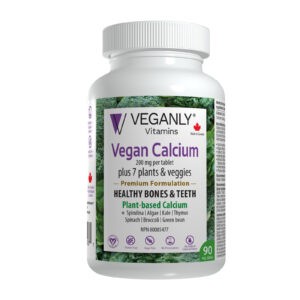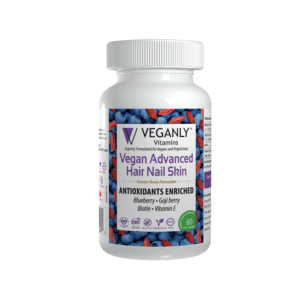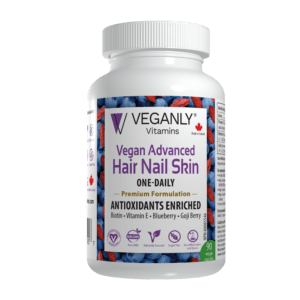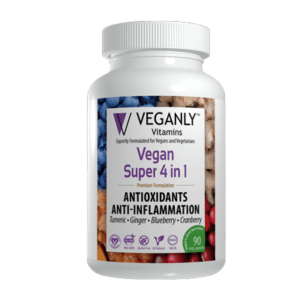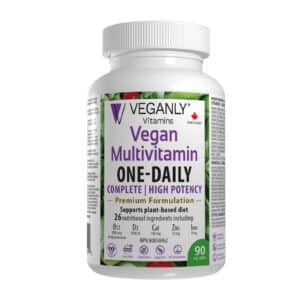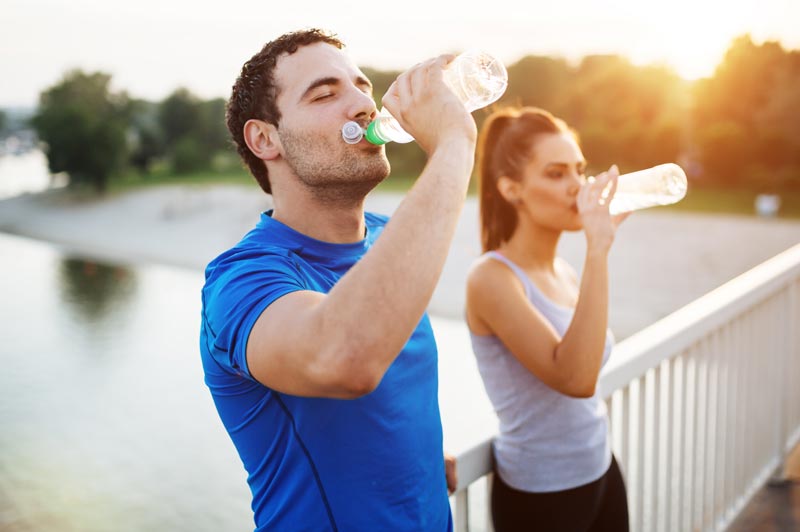It seems every year a new diet fad or trendy exercise comes along, offering a solution to our collective desire for weight loss and fitness in the quickest possible way. A sensible diet plus exercise remains a proven pathway for health and longevity, as such, many of us follow a vegetarian diet.
Exercise strengthens our bones and muscles, reduces risk for heart disease and diabetes, prevents certain cancers, and helps improve mood. A vegetarian diet on the other hand, prevents heart disease, type 2 diabetes and certain types of cancer. If you combine exercise with a vegetarian diet, you must be ahead of the curve, right? Not so fast, it requires appropriate planning to do so.
Why you may not be getting the most out of your exercise
Are you feeling winded after a 30-minute aerobic exercise or can’t sustain a cardio exercise? Are you not seeing the desired results from your weight training? There is a concern that vegetarians are not getting enough nutrients to fuel exercise performance and build muscles. It doesn’t have to be.
If you are mindful of your nutritional intake with some supplementation, you should still be able to perform exercises and build muscles. In fact, studies have shown that vegetarian and non-vegetarian athletes did not demonstrate differences in exercise potential and performance.
But how do you do it?
Protein is key
You may not be getting adequate amounts of protein on a daily basis from your vegan diet. If you are doing strength-training, aim for 1.4 to 1.8 grams of protein per kilogram of body weight per day. If you are doing endurance-type of activities, take a lower range of 1.2 to 1.4 grams per kilogram of body weight per day.
Once you determine your level of protein intake, spread out your protein intake through out the day because our bodies store little protein. Vary your sources and spread it through out the day until you meet your target protein intake. Get a chockful of protein from legumes, whole grains, nuts and seeds.
Don’t forget Carbohydrates
You may be feeling winded after a cardio exercise or can’t sustain it because your body doesn’t have enough fuel. Numerous studies have concluded that increased carbohydrate intake can improve exercise capacity and that low-carb diets can be detrimental to exercise performance. The guideline for meeting the daily intake of carbohydrates is within the range of 7-10 grams per kilogram of body weight.
Supplements: Vitamins and Minerals
Active or athletic vegetarians may be deficient in zinc, iron and some trace minerals. To avoid deficiencies, which can affect athletic performance, eat foods with ample amounts of vitamins and zinc Supplementation is a good way to meet these requirements when plant-based sources are not enough to meet your daily targets.
How much to take?
|
Nutrient |
Guideline |
Sources |
|
Protein for strength |
1.4 to 1.8 grams per Kg of body weight |
Legumes, nuts, seeds Eat through out the day |
|
Protein for endurance activities |
1.2 to 1.4 grams per Kg of body weight |
Same |
|
Carbohydrate |
7-10 kg of body weight |
Whole grains, quinoa, lentils, beans, unprocessed starchy vegetables. |
There are no short-cuts to health and longevity. Diet and exercise remain the most reliable pathways to optimal health. As a vegetarian, you are already meeting half of the equation and more if you regularly exercise. It doesn’t stop there, you also need appropriate meal planning that meets your daily nutritional targets for protein and carbohydrates based on your body weight and activities. Get some supplementation when necessary and make exercise work even better for you!
REFERENCES
- Center for Disease Control. https://www.cdc.gov/physicalactivity/basics/pa-health/
- Harvard Health Publications. http://www.health.harvard.edu/staying-healthy/becoming-a-vegetarian
- The American Journal of clinical Nutrition. Physical fitness and vegetarian diets: is there a relation. David C Nieman.
- http://www.scienzavegetariana.it/medici/vegathletes.html
- Lemon PW. Do athletes need more dietary protein and amino acids? Intl J Sport Nutr 1995;5:S39-S61.
THE CONTENT AVAILABLE VIA THE WEB SITE IS PROVIDED WITH THE UNDERSTANDING THAT NEITHER VEGANLY NOR ITS SUPPLIERS OR USERS ARE ENGAGED IN RENDERING MEDICAL, COUNSELING, LEGAL, OR OTHER PROFESSIONAL SERVICES OR ADVICE.
SUCH CONTENT IS INTENDED SOLELY AS A GENERAL EDUCATIONAL AID. IT IS NOT INTENDED AS MEDICAL OR HEALTHCARE ADVICE, OR TO BE USED FOR MEDICAL DIAGNOSIS OR TREATMENT, FOR ANY INDIVIDUAL PROBLEM. IT IS ALSO NOT INTENDED AS A SUBSTITUTE FOR PROFESSIONAL ADVICE AND SERVICES FROM A QUALIFIED HEALTHCARE PROVIDER FAMILIAR WITH YOUR UNIQUE FACTS. ALWAYS SEEK THE ADVICE OF YOUR PHYSICIAN OR OTHER QUALIFIED HEALTHCARE PROVIDER REGARDING ANY MEDICAL CONDITION AND BEFORE STARTING ANY NEW TREATMENT.

